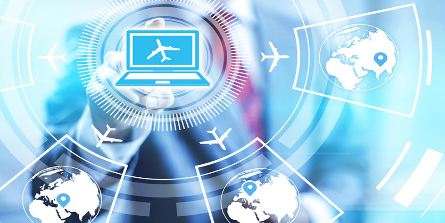Industry leaders point to trends and products likely to prevail in 2018. By Liesl Venter.
There is an increasing appetite for technology in Southern Africa as it is fast shaping how destinations interact with travellers.
“Consumers have become used to a recommendation-led experience across other industries. They have come to expect the same from their travel experience,” says Jannine Adams, Senior Manager Marketing at Amadeus Southern Africa.
“There is an ever-greater need for travel companies to employ sophisticated personalisation techniques and intelligent merchandising. Travel companies must move past getting people from A to B, but think about collecting information to build a 360° view of the traveller to create a tailored and memorable experience – right from the moment they are inspired to travel, to the time they return home from their trip.”
According to Adams we have now entered an “age of experimentation” where travel companies must test new ideas and take an analytics-enabled approach to innovation. “It is no longer enough to continue with the products and services that have been effective so far. Innovation requires travel companies to imagine ways to do things differently, or do new things altogether.”

Robert Hodson, GM – Marketing at Legacy Hotels and Resorts, says technology has certainly changed the travel industry, from the booking process to the seamless arrival of guests at hotels.
Considering the rapid developments in the technology space, it has become important for the hospitality and tourism sector at large to choose wisely when introducing new technology, he says.
“The uptake of technology locally has been a little behind Europe, but this has not really had a material impact on inbound tourism. Technology, however, is very expensive and one has to be very selective, otherwise you can quite easily have technology that sits dormant and is never used,” he comments.
Technology cost is a concern, agrees Vernon Wait, Marketing Director for Lalibela Game Reserve. “Also, bandwidth and cost of data are issues. Compared with foreign countries, costs in South Africa are bordering on extortionate. There is clearly not a free market.”
And with the provision of unlimited, uncapped Internet to guests fast becoming the biggest benefit for hotels in future, technology choices and the cost thereof are going to be strategic considerations in the future.
“Mobile solutions will be key, self-check-in, interactive apps for ordering and communication, and reputation management systems are the way the industry is moving,” he says. “The uptake of apps is growing, especially among millennials. The older generation still require direct interaction and are hesitant to download apps. Our challenge is that we have to continue to cater for all the markets.”
New this year
Chatbots and artificial intelligence are some of the new technologies to watch out for and are already being used by travel companies to respond to the changing needs of travellers, says Adams.
“Some companies have introduced virtual reality to allow travellers to ‘try before they fly’,” she says. “Amadeus will soon launch the Traveller Notifier tool, which sends important notifications to the traveller’s mobile phone, such as electronic ticket issuance, flight delay, boarding gate assignment and boarding gate change. Virtual reality will also continue to gain moment in 2018 in the travel industry.”
Julien Perreard, Group Head of Digital and Online at Giltedge, says while email is still very much the preferred way to communicate, there is real growth in platforms such as WhatsApp, Messenger and Skype. “It is time for tour operators to embrace instant messaging as another way to communicate at relevant stages of the travel customer journey.”

Like Adams, he says bots and virtual reality are two trends to keep a close eye on. “Bots, used in chat platforms or via Voice Interface, enhance the instant functionality of the platforms by giving real-time answers to customers’ travel-related questions, allowing consultants to focus on more hands-on matters, while virtual reality will ultimately, at some point, allow us to compare two different properties before bookings are even made. We expect to see this technology being used as a part of the travellers’ buying journey, just as the brochure is today.”
Augmented reality is also fast growing and, in Africa, says Perreard, there is some real potential in the safari sector. “I can see a great use for it on game drives in the many national parks and game reserves around Southern Africa and East Africa. For example, ‘Leopards of Londolozi’ is an amazing resource tracking each of the leopards at Londolozi Private Game Reserve but instead of having it displayed on a website as it is now, imagine having that information displayed as you point your phone (or look through your augmented reality (AR) glasses), knowing exactly which leopard you’re seeing behind the bush, his name, latest sighting and the like.”
According to Hodson, the use of Big Data is going to be key to the success of hotels in South Africa. “This will force hotels to introduce more efficient booking processes, which will, in turn, bring more direct business. Efficient check-in and seamless guest interaction during the stay will be key,” he says.
According to Christiaan Steyn, Marketing Manager at Drifters Adventours, a division of Tourvest, improving connectivity in Southern Africa’s remote destinations is of extreme importance. “It is a challenge because connectivity to the Internet in these remote destinations remains expensive and difficult to provide. We are, however, seeing more and more that travellers want to be able to connect with people back home to share their stories immediately instead of waiting until they are back home. WiFi is almost a must nowadays.”
Says Henk Graaff, MD of SW Africa: “People expect Internet everywhere they stay and they don’t want to have to pay for it. Technology is essential for inbound tourists, both from a safety perspective as well as to stay in touch with work and family.”
According to Graaff, the sharing economy will continue to be an important disruptor in 2018.
“We’ll see Airbnb starting to address the accommodation shortage gap and we’ll see ride-sharing services such as Uber improve any public transport shortcomings in our region.”






















